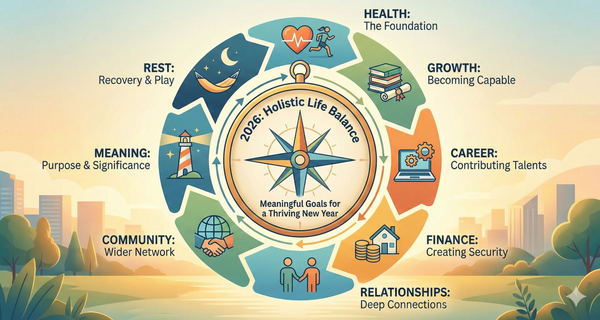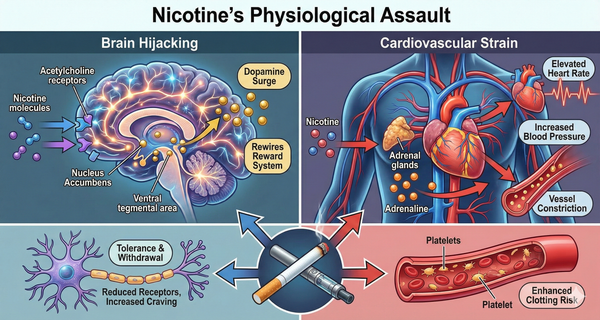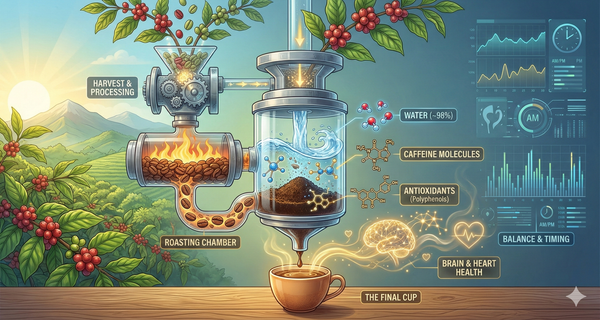Effective Strategies for Managing Adult ADHD
Effective Strategies for Managing Adult ADHD
Managing adult Attention-Deficit/Hyperactivity Disorder (ADHD) is a multifaceted journey that extends far beyond traditional treatments. While medication and therapy are cornerstones of care, the power of physical health in mitigating symptoms is a game-changer. By focusing on fundamental pillars like nutrition, exercise, and sleep, individuals can unlock potent, natural strategies to enhance focus, regulate emotions, and lead a more balanced life. This article explores effective physical health strategies that serve as a powerful toolkit for managing adult ADHD.
The Undeniable Link Between Physical Health and ADHD Management
The core of ADHD involves the brain's executive functions and the regulation of neurotransmitters, primarily dopamine and norepinephrine. Physical health directly influences these neurological systems. A lifestyle that neglects physical well-being can exacerbate ADHD symptoms, leading to increased inattention, impulsivity, and emotional dysregulation. Conversely, prioritizing physical health can create a robust foundation for symptom management. Simple lifestyle adjustments can naturally boost crucial neurotransmitter levels, leading to improved mental clarity, mood stability, and overall cognitive performance, acting as a complementary approach to traditional ADHD treatments.
Nutritional Strategies for a Sharper Mind
The food you consume is the fuel for your brain. For an individual with ADHD, the right nutritional strategy can be the difference between a day of scattered thoughts and one of clear focus. A diet tailored to support brain function can significantly stabilize energy levels and improve concentration, making it a critical component of a holistic ADHD management plan.
Fueling the Brain: The Importance of Protein and Complex Carbs
Protein is vital for the production of neurotransmitters. Including protein-rich foods like lean meats, beans, and nuts in every meal can help improve concentration and lengthen the effective duration of ADHD medications. Complex carbohydrates, found in whole grains, fruits, and vegetables, provide a steady supply of energy, preventing the blood sugar spikes and crashes that can lead to inattention and irritability. Pairing these two macronutrients creates a powerful combination for sustained focus and energy throughout the day.
Foods and Additives to Approach with Caution
Just as some foods can help, others can hinder ADHD management. Simple carbohydrates and sugar can cause rapid fluctuations in blood sugar, which can amplify hyperactivity and decrease focus. Many processed foods contain artificial colorings and preservatives that have been linked anecdotally and in some studies to an increase in ADHD symptoms. While a complete elimination diet is not always necessary, being mindful of these ingredients and opting for whole, unprocessed foods is a wise strategy for anyone looking to optimize their cognitive function.
Harnessing Exercise to Boost Focus and Mood
If there is a single most effective lifestyle intervention for ADHD, it is regular physical activity. Exercise naturally increases the levels of dopamine, norepinephrine, and serotonin in the brain—the very neurotransmitters that are dysregulated in individuals with ADHD. This '''natural medicine''' can improve attention, reduce impulsivity and hyperactivity, and elevate mood, making it an indispensable tool for daily management.
Finding Your Rhythm: Cardiovascular and Aerobic Workouts
Activities that get your heart pumping, such as running, swimming, or cycling, are incredibly beneficial for the ADHD brain. Cardiovascular exercise promotes the creation of new neural pathways and improves blood flow to the brain, enhancing executive functions. Consistency is more important than intensity. Aiming for at least 30 minutes of moderate-intensity aerobic exercise most days of the week can provide significant and sustained improvements in focus and mood regulation.
Mind-Body Connection: The Benefits of Yoga and Mindfulness
Practices like yoga, tai chi, and martial arts combine physical movement with mindfulness, which is particularly beneficial for managing ADHD. These activities enhance body awareness (proprioception), which can be challenging for those with ADHD. The focus on breathwork and deliberate movement helps calm the nervous system, reduce hyperactivity, and improve one's ability to be present and focused, skills that are directly transferable to everyday life.
The Critical Role of Sleep in Managing ADHD
Sleep and ADHD have a complicated, bidirectional relationship. ADHD can make it difficult to fall asleep due to a racing mind, and a lack of quality sleep can dramatically worsen ADHD symptoms the next day. This vicious cycle can cripple executive function and emotional regulation. Prioritizing good sleep hygiene is not just a recommendation; it is a necessity for effective ADHD management. Creating a calming, screen-free bedtime routine, maintaining a consistent sleep-wake schedule, and ensuring the bedroom is a dark, quiet sanctuary can help break the cycle and restore the brain's ability to function optimally.
A Holistic Path to Thriving with ADHD
Managing adult ADHD effectively requires a comprehensive and holistic approach. While professional medical advice is paramount, integrating targeted physical health strategies is a powerful way to take control. By nourishing your brain with the right foods, engaging in regular physical activity, and prioritizing restorative sleep, you build a strong foundation for resilience and focus. These strategies are not a cure, but they are potent tools that empower you to work with your ADHD brain, paving the way for a more focused, stable, and fulfilling life.




